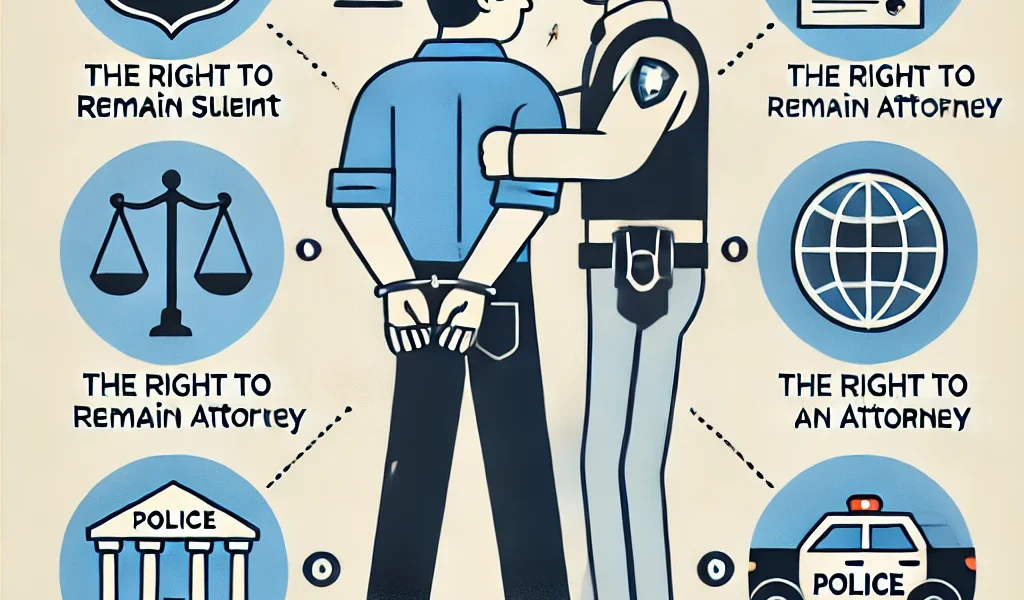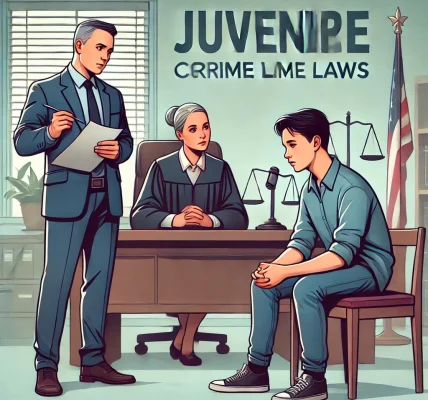Getting arrested can be a frightening and overwhelming experience. However, knowing your legal rights can help you navigate the situation more confidently. The criminal justice system is designed to ensure fair treatment for everyone, and understanding your rights can prevent any potential violations. This guide will explain what you should do if you are arrested and the legal protections available to you.
Understanding Arrests and Your Basic Rights
An arrest occurs when law enforcement officers take an individual into custody based on suspicion of committing a crime. If this happens, you must be aware of your legal protections under the U.S. Constitution and international human rights laws.
Your fundamental rights when arrested include:
- The Right to Remain Silent
- The Right to Legal Counsel (Attorney)
- The Right to Know the Charges Against You
- The Right to a Fair Trial
- Protection Against Unlawful Searches and Seizures
Now, let’s break down each of these rights and how they apply during an arrest.
1. The Right to Remain Silent (Fifth Amendment Right)
One of the most important rights you have during an arrest is the right to remain silent. This means:
- You do not have to answer any questions from law enforcement.
- Anything you say can be used against you in court.
- You can simply state, “I wish to remain silent” or “I want to speak to a lawyer.”
Why is this important? Many individuals unknowingly provide self-incriminating statements during questioning. Staying silent until you consult with an attorney can protect you from making mistakes that could harm your case.
2. The Right to an Attorney (Sixth Amendment Right)
You have the right to legal representation during and after your arrest. If you cannot afford an attorney, one will be provided for you.
- You should clearly state: “I want to speak to an attorney.”
- Police must stop questioning you until your lawyer is present.
- If you continue speaking voluntarily, those statements can be used against you.
Why is this important? An attorney will guide you through the legal process, protect your rights, and help build your defense. Do not sign any documents or make statements without consulting a lawyer.
3. The Right to Know the Charges Against You
Law enforcement officers must inform you of the exact charges for which you are being arrested. This right ensures:
- Transparency in the legal process.
- You are not wrongfully detained without cause.
- You can begin preparing a legal defense.
Upon arrest, police must also read your Miranda Rights, which include:
- You have the right to remain silent.
- Anything you say can be used against you in court.
- You have the right to an attorney.
If these rights are not read to you, certain evidence may be inadmissible in court.
4. The Right to a Fair and Speedy Trial (Sixth Amendment Right)
After an arrest, you are entitled to:
- A fair trial before a neutral judge or jury.
- A speedy trial to prevent excessive detention without due process.
- The opportunity to present evidence and challenge the prosecution’s case.
If your trial is delayed unfairly, your lawyer can request a dismissal of charges or other legal remedies.
5. Protection Against Unlawful Searches and Seizures (Fourth Amendment Right)
The Fourth Amendment protects you from unreasonable searches and seizures. This means:
- Law enforcement officers must have a valid warrant to search your home, vehicle, or property (with some exceptions).
- You have the right to refuse consent for a search unless there is probable cause.
- Evidence obtained illegally (without a warrant or valid reason) can be challenged in court.
Exceptions to the Warrant Rule:
- If police see illegal activity in plain view.
- If you are under arrest, they may search your immediate surroundings.
- If there is an emergency situation, such as preventing the destruction of evidence.
What to Do If You Are Arrested
- Stay Calm: Do not resist arrest or argue with officers.
- Invoke Your Rights: Politely say, “I wish to remain silent and speak to my attorney.”
- Do Not Consent to Searches: If asked for permission to search, say, “I do not consent to this search.”
- Do Not Discuss Your Case: Avoid speaking about your arrest with anyone other than your attorney.
- Record Details: If possible, note the officer’s name, badge number, and other relevant details.
- Request a Phone Call: You are entitled to contact a family member or lawyer.
Common Misconceptions About Arrests
1. “If I’m innocent, I should explain my side of the story.”
- Even if you are innocent, your words can be misinterpreted. It’s always safer to wait for legal counsel.
2. “I must answer all police questions.”
- No, you only need to provide basic identifying information (name, address). Beyond that, you have the right to remain silent.
3. “If I refuse a search, I must be guilty.”
- Refusing a search is a legal right and does not imply guilt.
4. “If I wasn’t read my Miranda Rights, my case is automatically dismissed.”
- While failure to read Miranda Rights can affect evidence admissibility, it does not automatically dismiss charges.
Conclusion
Knowing your rights when arrested is crucial to ensuring a fair legal process. By understanding and invoking your right to remain silent, right to an attorney, and protection against unlawful searches, you can protect yourself from self-incrimination and unfair treatment.
If you are ever arrested, remember:
- Do not resist.
- Do not answer questions without an attorney.
- Do not consent to searches.
- Stay calm and assert your rights.
Consulting with a criminal defense attorney is the best way to navigate the legal system and protect your rights. Stay informed, stay aware, and know that the law is there to protect you.
SEO Optimization in This Blog:
✅ Primary Keywords: Rights when arrested, legal rights, criminal defense attorney, Miranda Rights, right to remain silent.
✅ Engaging Headings & Subheadings: Easy to scan and read.
✅ Clear Call-to-Action: Encouraging readers to consult an attorney.
✅ Audience Engagement: Practical steps and myth debunking to make it valuable.




